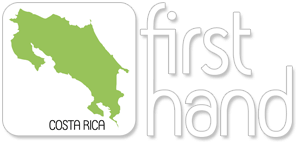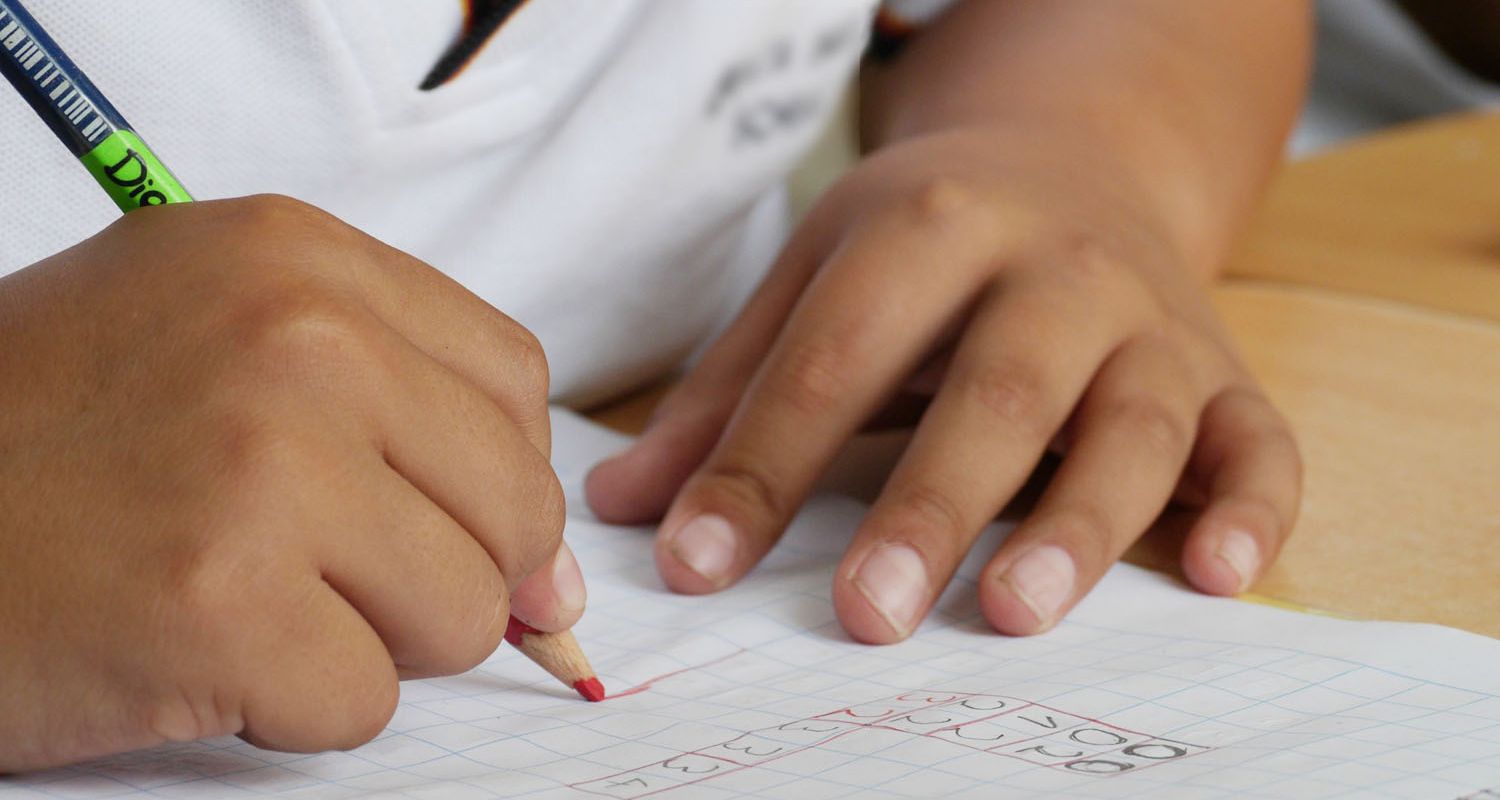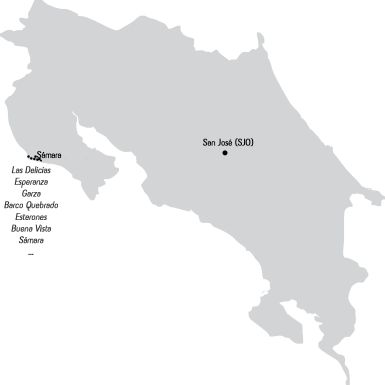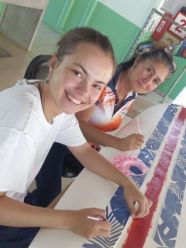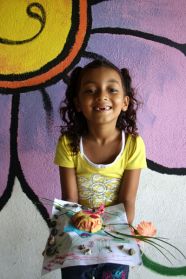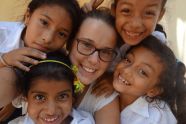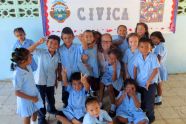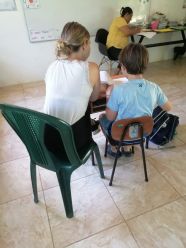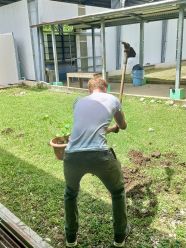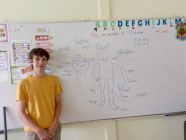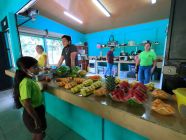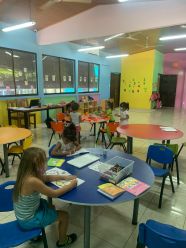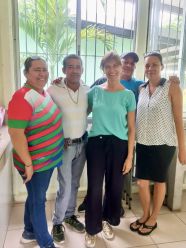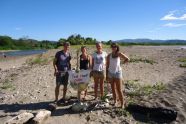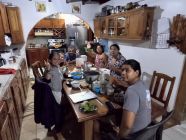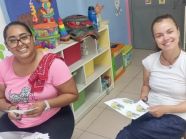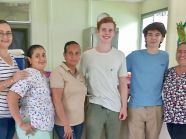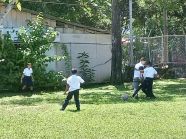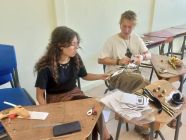Teaching in Schools at the Beach
The village schools (escuelas) we work with have between 15 and 150 children and sometimes also a preschool section. The basic subjects taught there are mathematics, Spanish, science, social studies and English. Since the mastery of the English language is becoming more and more important in Costa Rica, there is a great interest in English lessons, especially on the part of the children's parents. But also offers in sports, handicrafts, music, dance, theater, etc. are in great demand and popular with the children!
Currently, we are also working with a small private school near Nosara, which teaches according to the Montessori pedagogy. This school is run by a Costa Rican couple and has about 60 students. Although a monthly school fee is charged, it is not an 'elite school for rich kids' - the school also gives many scholarships to families without adequate income.
The following information and job descriptions apply to both the state school and the private school - only the vacation periods (see there) are a little different. So your assignment possibility depends also on the period you want to come - furthermore you can choose the type of school you want to work in.
In most schools you can accompany and assist the teacher during the lessons. The rest of the care and courses offered by the volunteers usually take place outside of regular school hours and are voluntary for the children. Group sizes and compositions vary and therefore flexibility and creativity is required.
During your stay you will be accommodated in host families in the village in your own room or cottage (possibly together with another volunteer) and will receive breakfast, lunch and dinner in the typical way of the country based on rice, beans, vegetables, meat and fruits.
Your work includes
In the school projects, volunteers are expected to be responsible and conscientious in preparing for their childcare duties and to seek intensive contact with teachers, parents and children.
- 2-6 hours of supervision of children/preschoolers per day
- in most schools: Accompanying the teacher during classes in the morning.
- Assisting with activities in English, sports, games, handicrafts, music, theater, etc.
- Checking homework and supervising groups, as instructed by the teacher
- Taking over administrative tasks in the school
- Supervision during breaks
- Cleaning and tidying up of the rooms in use
- Separating waste and, if necessary, maintaining the school's own gardens
- Preparing and supplementing teaching materials
- Collaboration in school events (performances, tournaments, beach clean-ups, etc.)
In addition, volunteers are expected to be active and motivated in helping with general village development:
- Assist with village construction and beautification activities such as plantings, playground construction, painting fences and buildings, etc., as needed at the time
- Help with village/school fundraisers
- Afternoon language classes for youth and children with their parents are very welcome
Things to bring
- creativity and talent for improvisation as even the most basic resources are often limited and require to use your imagination
- enjoying to work independently and self-motivated
- fun and sense of responsibility to work with children (3-12 years)
- if possible: all kind of didactic material (handicraft material (beads, foam rubber, glue...), educational games, music-, educational CD's etc., books, games, music...)
- elementary knowledge of spanish; there is the possibility to book spanish classes with first hand
- clothes for a decent dress code (no tank tops and shorts in class)
Notes
In Costa Rica, piercings and tattoos are not welcome in kindergartens and schools that work with us and are sometimes openly rejected. We depend on good cooperation and acceptance from teachers, children and (especially) parents. If you wear such body jewelry, you would have to agree to take out visible piercings while working with the children and to cover visible tattoos with clothing.
In the schools, children wear school uniforms and teachers are required to wear discreet clothing: pants must completely cover the thighs; tops must cover the shoulders and neckline (no spaghetti straps, no plunging necklines), sandals or shoes (no flip flops).
It is important to us that our volunteers adapt to the local conditions during their time of volunteer service and carefully 'empathize' for a while. If you want to get to know Costa Rica, it may be necessary for you to give up some of your favorite things during this time. We hope for your understanding.
Vacations in public schools
- middle of December to early February (major school vacations)
- Easter week
- 1st of May Labour Day
- first two weeks of July
- 25th of July Día de la Annexión de Guanacaste
- 15th of September Independence Day
During the major school vacations (New Year's Day to mid-February) you can organize a vacation program if you have been on site for a while and have gained the trust of the children and parents. Otherwise, there is no vacation program in state schools.
Vacations in private schools
- Start of school: first week in January
- Vacation - Easter week
- May 1 Labor Day
- Vacations - last week of June and first week of July
- July 25 Guanacaste Annexation Day
- August 15 Mother's Day
- September 15 Independence Day
- Vacation - last week of September
- Exams - middle of October
- November/December: Extra activities 'campamento'.
Project Location
The schools are located on the northwest pacific coast of Costa Rica in Guanacaste between Sámara and Nosara.
If you register here and start the project, we will plant a tree for you!
Reviews
This has been the best trip of my life. This experience was incredible on all levels. First of all the family that hosted me were very kind, very welcoming and very present when I needed help. Secondly, in regards to the school that I helped out in, everyone there was extremely nice to me and made me feel comfortable right away. I was able to meet some very nice people in this school and make some very nice friendships. As far as the children in this school are concerned, they allowed me to grow, to learn about life, and I was happy to realize that I was able to make a small impact on them. I also made incredible connections with them and the goodbyes were very emotional, they even gave me a gift for my departure.
And finally, in my free time all the people I met there were very dedicated to giving me an incredible time doing lots of activities and discovering Costa Rica and their culture with them. Therefore this experience was incredible and exceeded all my expectations, I highly recommend and thank the First Hand Costa Rica organization and all the people I met there for what they made me live.
